Discover The Daily Poem
The Daily Poem

800 Episodes
Reverse
Happy birthday to the Bard!NB: Anyone itching to dig deeper into Shakespeare’s plays should look no further than one of our sister podcasts, The Play’s the Thing! Get full access to The Daily Poem Podcast at dailypoempod.substack.com/subscribe
Louise Glück was born in New York City in 1943. She is the author of numerous poetry collections, including Winter Recipes from the Collective (2021); Faithful and Virtuous Night (2014), which won the National Book Award; Poems: 1962-2012 (2012), winner of the Los Angeles Times Book Prize; and The Wild Iris (1992), which won the Pulitzer Prize; and Ararat (1990), which won the Rebekah Johnson Bobbitt National Prize for Poetry from the Library of Congress. In 2020, Glück was awarded the Nobel Prize in Literature. Her other honors include The New Yorker’s Book Award in Poetry, the Wallace Stevens Award from the Academy of American Poets, the William Carlos Williams Award from the Poetry Society of America, and the National Book Critics Circle Award. She has also received fellowships from the Guggenheim Foundation, the Rockefeller Foundation, and the National Endowment for the Arts. A member of the American Academy and Institute of Arts and Letters, Glück was elected a Chancellor of the Academy of American Poets in 1999 and named the 12th Poet Laureate Consultant in Poetry to the Library of Congress in 2003. Glück has taught English and creative writing at Williams College, Yale University, Boston University, the University of Iowa, and Goddard College. She died in 2023.-bio via Library of Congress Get full access to The Daily Poem Podcast at dailypoempod.substack.com/subscribe
Francis Thompson was born in Northwest England in 1859. The son of Catholic converts, as a boy he was initially educated for the priesthood. When he was 18, at his parents' insistence, he entered Owens College in Manchester to follow in his father's footsteps and study medicine. But before long, he left for London hoping to pursue what he believed was his true vocation of being a writer. As a result of ill health and subsequent medical treatment, like many before him, Thompson became addicted to opium. He soon fell into a life of despair and destitution, sleeping on the banks of the Thames with London's homeless and selling matches just to stay alive.Yet it was during this time, in the midst of all his hunger, deprivation and hopelessness, that he was most able to see the kingdom of Heaven. These devastating experiences honed his poetic focus and insights. In 1888, Thompson sent a tattered and torn manuscript to the Catholic periodical Merry England. Its editors, Wilfrid and Alice Meynell, devout Christians themselves, not only recognized Thompson's poetic ability, they took him under their care and gave him a home. They also arranged for the publication of his first book in 1893, simply titled Poems, which included The Hound of Heaven. The poem was immediately recognized as a masterpiece.Thompson spent the years from 1893-1897 nursing his frail health in a monastery in Wales. He died of tuberculosis on November 13, 1907. He was 47. After his death, Alice Meynell wrote that no change in poetic tastes in the years to come could ever "lessen the height or diminish the greatness" of Thompson's profound accomplishment. In his eulogy for Thompson, G. K. Chesterton simply concluded: "He was a great poet." Among those who would be influenced by Thompson was the young J. R. R. Tolkien, who purchased a volume of Thompson's works in 1913, and later claimed that it had played an important role in his own writing.-bio via HoundofHeaven.com Get full access to The Daily Poem Podcast at dailypoempod.substack.com/subscribe
Today’s poem–benign anthem of the resilient human spirit or a hymn to radical autonomy?–has divided audiences for more than a century.Born in Gloucester, England, poet, editor, and critic William Ernest Henley was educated at Crypt Grammar School, where he studied with the poet T.E. Brown, and the University of St. Andrews. His father was a struggling bookseller who died when Henley was a teenager. At age 12 Henley was diagnosed with tubercular arthritis that necessitated the amputation of one of his legs just below the knee; the other foot was saved only through a radical surgery performed by Joseph Lister. As he healed in the infirmary, Henley began to write poems, including “Invictus,” which concludes with the oft-referenced lines “I am the master of my fate; / I am the captain of my soul.” Henley’s poems often engage themes of inner strength and perseverance. His numerous collections of poetry include A Book of Verses (1888), London Voluntaries (1893), and Hawthorn and Lavender (1899).Henley edited the Scots Observer (which later became the National Observer), through which he befriended writer Rudyard Kipling, and the Magazine of Art, in which he lauded the work of emerging artists James McNeill Whistler and Auguste Rodin. Henley was a close friend of Robert Louis Stevenson, who reportedly based his Long John Silver character in Treasure Island in part on Henley.-bio via Poetry Foundation Get full access to The Daily Poem Podcast at dailypoempod.substack.com/subscribe
What do John Donne, Paul Simon, and AC/DC have in common? Today’s poem. Happy reading! Get full access to The Daily Poem Podcast at dailypoempod.substack.com/subscribe
Today it’s Whitman (and Dylan) on the march of progress. Get full access to The Daily Poem Podcast at dailypoempod.substack.com/subscribe
Today’s poem imagines what you might do when you’re through paying taxes. Get full access to The Daily Poem Podcast at dailypoempod.substack.com/subscribe
Today’s poem is an ekphrasis on a portrait of the poet himself–all that the portrait does and doesn’t capture or convey. Get full access to The Daily Poem Podcast at dailypoempod.substack.com/subscribe
Today’s poem is a lighter take on the self-portrait ekphrasis. What is it about the self-portrait that is so intriguing to poets, anyway? Get full access to The Daily Poem Podcast at dailypoempod.substack.com/subscribe
Elizabeth Jennings (1926-2001) was born in Boston, Lincolnshire but moved to Oxford at the age of six where she lived for the rest of her life. She studied at St. Anne’s College, Oxford and worked in advertising, at the City Library and briefly in publishing before becoming a full-time writer. Her consistent devotion to poetry yielded over twenty books during her life, a New Collected Poems appearing in 2002. Although initially linked to the group of poets including Kingsley Amis, Philip Larkin and Thom Gunn known as ‘The Movement’, Jennings’ work doesn’t share their irony or academic wit. However, the unassuming technical craft of her poetry and its emotional restraint are qualities that were praised by the poets and critics of the period and continued to be abiding characteristics of her work. An important theme is her Catholicism and many of her poems have a devotional aspect. Her intense musing on spirituality encouraged a sensitivity towards others, evident in the pained tenderness of some of her poems. Jennings’ sincere and scrupulous work gradually built both critical acclaim that weathered changes in poetic fashion, and a genuine popularity. Amongst the many honours awarded her work are the W.H. Smith Literary Award, the Somerset Maugham Award and a CBE. Although consistent in its tone and concerns, her poetry continued to develop and mature – later work demonstrating a more flexible approach to form whilst retaining her clarity.-bio via Poetry Archive (where you can also hear Jennings reading her own poem) Get full access to The Daily Poem Podcast at dailypoempod.substack.com/subscribe
Richard Howard (born Oct 13, 1929, died march 31, 2022) was credited with introducing modern French fiction—particularly examples of the Nouveau Roman—to the American public; his translation of Charles Baudelaire’s Les Fleurs du Mal (1984) won a National Book Award in 1984. A selection of Howard’s critical prose was collected in the volume Paper Trail: Selected Prose 1965-2003, and his collection of essays Alone with America: Essays on the Art of Poetry in the United States since 1950 (1969) was praised as one of the first comprehensive overviews of American poetry from the latter half of the 20th century. First and foremost a poet, Howard’s many volumes of verse also received widespread acclaim; he won the 1970 Pulitzer Prize in Poetry for his collection Untitled Subjects. His other honors included the American Book Award, the Harriet Monroe Memorial Prize, the PEN Translation Medal, the Levinson Prize, and the Ordre National du Mérite from the French government. For many years, Howard was the poetry editor of the Paris Review.Evaluations of Howard usually judge his work as a poet to be his most important contribution to contemporary American literature. However, his work has and continues to attract a wide and enthusiastic audience among readers, academics, and critics alike.-bio via Poetry Foundation Get full access to The Daily Poem Podcast at dailypoempod.substack.com/subscribe
ekphrasis: “Description” in Greek. An ekphrastic poem is a vivid description of a scene or, more commonly, a work of art. Through the imaginative act of narrating and reflecting on the “action” of a painting or sculpture, the poet may amplify and expand its meaning.Once internationally famous as the author of the poem "The Man with the Hoe," Edwin Markham (1852-1940) was a popular American literary figure during the first half of the 20th century whose works espoused progressive social and spiritual beliefs. In contrast to the experimentalism and pessimism that generally characterized poetry of this era, Markham's quatrains, sonnets, and heroic verse celebrate peace, love, and socialist utopian reform. In a 1902 essay in the Comrade, Leonard D. Abbot proclaimed that "Markham, more than any other poet in the English language, can claim the honor of being the Bard of Labor—the true product of the last great movement that is destined to shake the world."In 1876 Markham abandoned the Methodist faith of his childhood and became a follower of the spiritualist and utopian socialist Thomas Lake Harris. Harris's doctrine, which espoused social harmony and universal charity, became a major force in Markham's life. Markham had begun writing poetry as early as 1872, but he did not sell his first poem until 1880. For the next 19 years, he contributed poems to Harper's, Century, and Scribner's, and cultivated friendships with such eminent American literary figures as Edmund Clarence Stedman, Hamlin Garland, and Ambrose Bierce.During the last week of December 1898, Markham completed a poem that changed his career overnight. Titled "The Man with the Hoe," the poem was based on the painting of the same name by the French artist Jean-Francois Millet in 1862. Millet's painting depicts a stooping peasant with a brutish expression on his face, who in Markham's poem becomes the embodiment of the suffering of oppressed labor throughout world history. Markham read the poem to an editor of William Randolph Hearst's San Francisco Examiner at a New Years' Eve party, and that newspaper published the work two weeks later."The Man with the Hoe" attracted wide public notice and was reprinted in newspapers across the United States. Its appeal for better treatment of the working class became the subject of national debate and launched Markham's career as a poet, transforming him into a national celebrity. Markham enjoyed this immense public prestige until his death in 1940.Markham's poetry is characterized by its highly rhetorical nature and expresses his advocacy of social reform, as well as his desire for the unity of humankind through spiritual faith. "The Man with the Hoe," as well as his subsequent poetry, was hotly debated by critics. William Jennings Bryan wrote: "There is a majestic sweep to the argument; some of the lines pierce like arrows," while Ambrose Bierce railed: "As a literary conception it has not the vitality of a dead fish. It will not carry a poem of whatever excellence otherwise through two generations." Although Markham's first collection of poetry, The Man with the Hoe, and Other Poems, was subject to the same controversy, critics generally viewed Markham as a poet of much promise. With each successive collection, however, he encountered disfavor with critics. When Gates of Paradise, and Other Poems was published in 1920, Herbert S. Gorman wrote, "Markham became a poet when he wrote 'The Man with the Hoe' and when he penned the last line he ceased to be a poet." Nevertheless, Markham always remained popular with readers, and his distinguished appearance—tall, ruggedly featured, and bearded—impressed many people as the ideal of a great American poet.In 1922, Markham, on invitation from former president William Howard Taft, read his poem "Lincoln, the Man of the People" at the dedication of the Lincoln Memorial; in 1932, on the occasion of Markham's 80th birthday, he was regaled at New York's Carnegie Hall, a celebration to which 35 nations sent representatives. Despite the decline in his reputation after his death, among scholars Markham remains an important figure in American poetry of the early 20th century. "At a time when protest counted, Markham's first triumph, 'The Man with the Hoe,' helped awaken the conscience of the American people," observed Joseph W. Slade in the Dictionary of Literary Biography. "Markham elevated socialism, naive as it was, into sublimity. If 'The Man with the Hoe' represents Markham on a soapbox, critic Benjamin De Casseres has written, the 'that soapbox is a star.'"-bio via Poetry Foundation Get full access to The Daily Poem Podcast at dailypoempod.substack.com/subscribe
Today’s poem is in honor of April being (according to now-outdated tradition) the last prudent month till Autumn in which to eat oysters. Happy reading!Self-effacing, yet having an expressive critical ability; reveling in the possibilities of fancy, though thoroughly at home with the sophisticated nuances of logic and mathematics, Lewis Carroll (Charles Lutwidge Dodgson) was an individual who, through his rare and diversified literary gifts and power of communication, left an indelible mark upon the imaginations of children and adults both during his generation and in generations to come. His best-known works, Alice’s Adventures in Wonderland (1865) and Through the Looking-Glass, And What Alice Found There (1872) are still enjoyed by readers throughout the world and have been adapted for radio, television, and motion pictures.-bio via Poetry Foundation Get full access to The Daily Poem Podcast at dailypoempod.substack.com/subscribe
West Indian poet and playwright Derek Walcott made his debut as an 18-year-old with In a Green Night. For many years he divided his time among Saint Lucia; Boston University, where he taught; and Trinidad, where he managed a theater. Walcott also worked as an artist and combined his poetry with painting in the volume Tiepolo’s Hound (2005).Walcott’s works often deal with Caribbean history, while he simultaneous searches for vestiges of the colonial era. Western literary canon is revised and given a completely new form, as in the poetry collection Omeros (1990). In his writing Walcott explores the complexity of living and working in two cultures.-bio via Nobel Foundation Get full access to The Daily Poem Podcast at dailypoempod.substack.com/subscribe
In today’s poem: George Herbert meditating on the simple profundity of a single, sustained metaphor. Happy reading. Get full access to The Daily Poem Podcast at dailypoempod.substack.com/subscribe
Today’s poem–a layered, jokingly-serious response to one of last week’s–comes from Ogden Nash, dubbed the ‘Laurate of Light Verse.’ Which banner would you rally under–Nash or Byron?One of the most widely appreciated and imitated writers of light verse, Frediric Ogden Nash was born in Rye, New York, on August 19, 1902, to Edmund Strudwick and Mattie Nash. He came from a distinguished family; the city of Nashville, Tennessee, was named in honor of one of his forbearers. Nash attended Harvard College, but dropped out after only one year. He worked briefly on Wall Street, and as a schoolteacher, before becoming a copywriter. In 1925, he took a job in the marketing department with the publishing house Doubleday.Nash's first published poems began to appear in the New Yorker around 1930. His first collection of poems, Hard Lines (Simon & Schuster), was published in 1931. The book was a tremendous success; it went into seven printings in its first year alone, and Nash quit his job with Doubleday. That same year, he married Frances Rider Leonard; they had two children. Nash worked briefly for the New Yorker in 1932, before deciding to devote himself full-time to his verse.Nash considered himself a "worsifier." Among his best known lines are "Candy / Is dandy, / But liquor / Is quicker" and "If called by a panther / Don't anther." His poems also had an intensely anti-establishment quality that resounded with many Americans, particularly during the Depression. Nash was a keen observer of American social life, and frequently mocked religious moralizing and conservative politicians. His work is often compared with other satirists of the time, including Dorothy Parker, Robert Benchley, and H. L. Mencken. He appeared regularly on radio and on television, and he drew huge audiences for his readings and lectures.Nash was also the author of three screenplays for MGM, and with S. J. Perelmen, he wrote the 1943 Broadway hit One Touch of Venus. In the 1950s, Nash focused on writing poems for children, including the collection Girls Are Silly (Franklin Watts, 1962). He died on May 19, 1971.-bio via Academy of American Poets Get full access to The Daily Poem Podcast at dailypoempod.substack.com/subscribe
A joyous Eastertide and happy reading to you all! Get full access to The Daily Poem Podcast at dailypoempod.substack.com/subscribe
Due to the inconsistencies and ambiguities within his work and the scarcity of information about his personal life, Andrew Marvell has been a source of fascination for scholars and readers since his work found recognition in the early decades of the twentieth century. Born on March 31, 1621, Marvell grew up in the Yorkshire town of Hull, England, where his father, Rev. Andrew Marvell, was a lecturer at Holy Trinity Church and master of the Charterhouse. At age twelve Marvell began his studies at Trinity College, Cambridge. Four years later, two of Marvell’s poems, one in Latin and one in Greek, were published in an anthology of Cambridge poets. After receiving his bachelor’s degree in 1639, Marvell stayed on at Trinity, apparently to complete a master’s degree. In 1641, however, his father drowned in the Hull estuary and Marvell abandoned his studies. During the 1640s Marvell traveled extensively on the continent, adding Dutch, French, Spanish, and Italian to his Latin and Greek—missing the English Civil Wars entirely.Marvell spent most of the 1650s working as a tutor, first for Mary Fairfax, daughter of a retired Cromwellian general, then for one of Oliver Cromwell’s wards. Scholars believe that Marvell’s greatest lyrics were written during this time. In 1657, due to John Milton’s efforts on his behalf, Marvell was appointed Milton’s Latin secretary, a post Marvell held until his election to Parliament in 1660.A well-known politician, Marvell held office in Cromwell’s government and represented Hull to Parliament during the Restoration. His very public position—in a time of tremendous political turmoil and upheaval—almost certainly led Marvell away from publication. No faction escaped Marvell’s satirical eye; he criticized and lampooned both the court and Parliament. Indeed, had they been published during his lifetime, many of Marvell's more famous poems—in particular, “Tom May's Death,” an attack on the famous Cromwellian—would have made him rather unpopular with royalists and republicans alike.Marvell used his political status to free Milton, who was jailed during the Restoration, and quite possibly saved the elder poet’s life. In the early years of his tenure, Marvell made two extraordinary diplomatic journeys: to Holland (1662–63) and to Russia, Sweden, and Denmark (1663–65). In 1678, after eighteen years in Parliament, Marvell died rather suddenly of a fever. Gossip from the time suggested that the Jesuits (a target of Marvell’s satire) had poisoned him. After his death, he was remembered as a fierce and loyal patriot.Now considered one of the greatest poets of the seventeenth century, Marvell published very little of his scathing political satire and complex lyric verse in his lifetime. Although he published a handful of poems in anthologies, a collection of his work did not appear until 1681, three years after his death, when his nephew compiled and found a publisher for Miscellaneous Poems. The circumstances surrounding the publication of the volume aroused some suspicion: a person named “Mary Marvell,” who claimed to be Marvell’s wife, wrote the preface to the book. “Mary Marvell” was, in fact, Mary Palmer—Marvell’s housekeeper—who posed as Marvell’s wife, apparently, in order to keep Marvell’s small estate from the creditors of his business partners. Her ruse, of course, merely contributes to the mystery that surrounds the life of this great poet.Andrew Marvell died on August 16, 1678.-bio via Academy of American Poets Get full access to The Daily Poem Podcast at dailypoempod.substack.com/subscribe
English peer and poet George Gordon Byron was one of the bad boys of the Romantic movement and, by some accounts, the first ‘celebrity.’ Like countless celebrities who would come after, he was embroiled in a number of romantic scandals and never accused of being overly pious (to put it Britishly). Nevertheless, he was moved by a number of stories from the Hebrew scriptures–a response that inspired him to pen an entire collection of poetry and one of the best-known similes in English poetry. Get full access to The Daily Poem Podcast at dailypoempod.substack.com/subscribe
Poet, editor, translator, and critic Louis Simpson was born in Jamaica to Scottish and Russian parents. He moved to the United States when he was 17 to study at Columbia University. After his time in the army, and a brief period in France, Simpson worked as an editor in New York City before completing his PhD at Columbia. He taught at colleges such as Columbia University, the University of California, Berkeley, and the State University of New York at Stony Brook.A contemporary of confessional poets like Robert Lowell, John Berryman, and Sylvia Plath, Simpson’s early work followed a familiar arc. In the New York Times Book Review, critic David Orr noted its highlights: “Simpson has followed a path lined with signposts sunk so deep in our nation's poetic terra firma that they've practically become part of the landscape. Those signposts declare that a poet born in or around the 1920s should (1) begin his career writing witty, ironic formal poems bearing the stamp of Eliot and Auden; then (2) abandon that formalism for a more 'natural' free verse approach, while (3) dabbling in surrealism; until (4) finally settling on social, conversational poems in the manner of a man speaking to men.” While Simpson’s early books like The Arrivistes (1949) and A Dream of Governors (1959) show the influence of Auden, they also speak to his horrific experiences in World War II, where he served in the 101st Airborne Division and saw active duty in France, Belgium, and Germany. Simpson’s intense formal control, at odds with the visceral details of soldiering, also earned him comparisons to Wilfred Owen. At the End of the Open Road (1963) won the Pulitzer Prize and marked a shift in Simpson’s poetry as well. In this and later volumes, like Searching for the Ox (1976) and The Best Hour of the Night (1983), Simpson’s simple diction and formally controlled verses reveal hidden layers of meaning.Simpson’s lifelong expatriate status influenced his poetry, and he often uses the lives of ordinary Americans in order to critically investigate the myths the country tells itself. Though he occasionally revisits the West Indies of his childhood, he always keeps one foot in his adopted country. The outsider’s perspective allows him to confront “the terror and beauty of life with a wry sense of humor and a mysterious sense of fate,” wrote Edward Hirsch of the Washington Post. Elsewhere Hirsch described Simpson’s Pulitzer Prize-winning collection, At the End of the Open Road (1963), as “a sustained meditation on the American character,” noting, “The moral genius of this book is that it traverses the open road of American mythology and brings us back to ourselves; it sees us not as we wish to be but as we are.” Collected Poems (1988) and There You Are (1995) focus on the lives of everyday citizens, using simple diction and narratives to expose the bewildering reality of the American dream. Poet Mark Jarman hailed Simpson as “a poet of the American character and vernacular.”A noted scholar and critic, Simpson published a number of literary studies, including Ships Going Into the Blue: Essays and Notes on Poetry (1994), The Character of the Poet (1986), and Three on the Tower: The Lives and Works of Ezra Pound, T.S. Eliot, and William Carlos Williams (1975). Simpson also penned a novel, Riverside Drive (1962), and the autobiographies The King My Father's Wreck (1994) and North of Jamaica (1972).Simpson’s later work included The Owner of the House: New Collected Poems (2003), a collection that spans his 60-year career, and Struggling Times (2009). In addition to the Pulitzer Prize, Simpson received numerous awards and accolades, including the Prix de Rome, the Columbia Medal for Excellence, and fellowships from the Guggenheim Foundation. He was a finalist for the prestigious Griffin International Poetry Award, and his translation of Modern Poets of France: A Bilingual Anthology (1997) won the Harold Morton Landon Translation Award.Simposon died in Setauket, New York in 2012.-bio via Poetry Foundation Get full access to The Daily Poem Podcast at dailypoempod.substack.com/subscribe



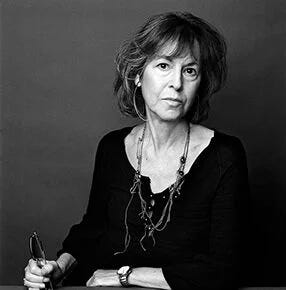
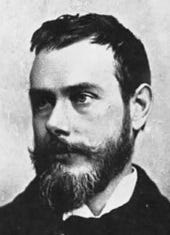
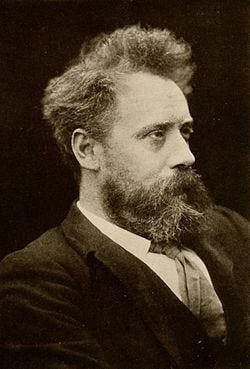



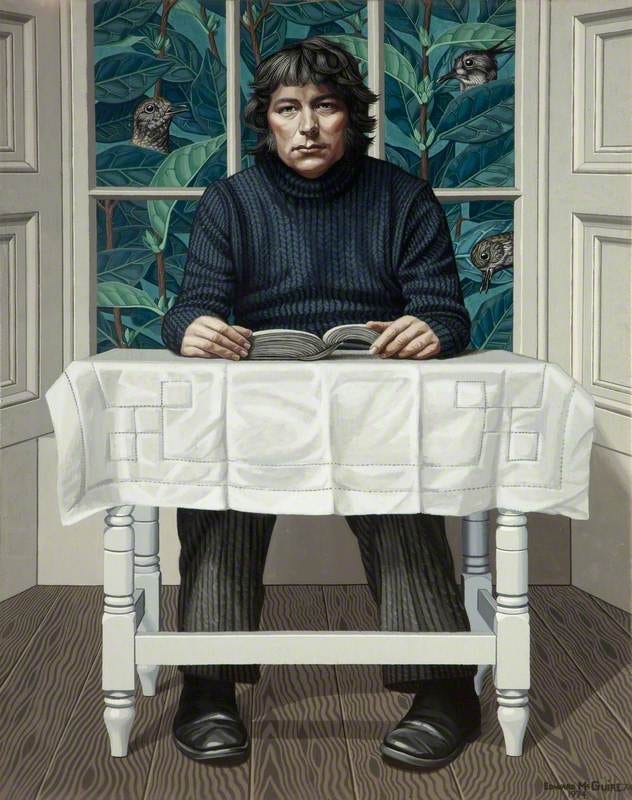
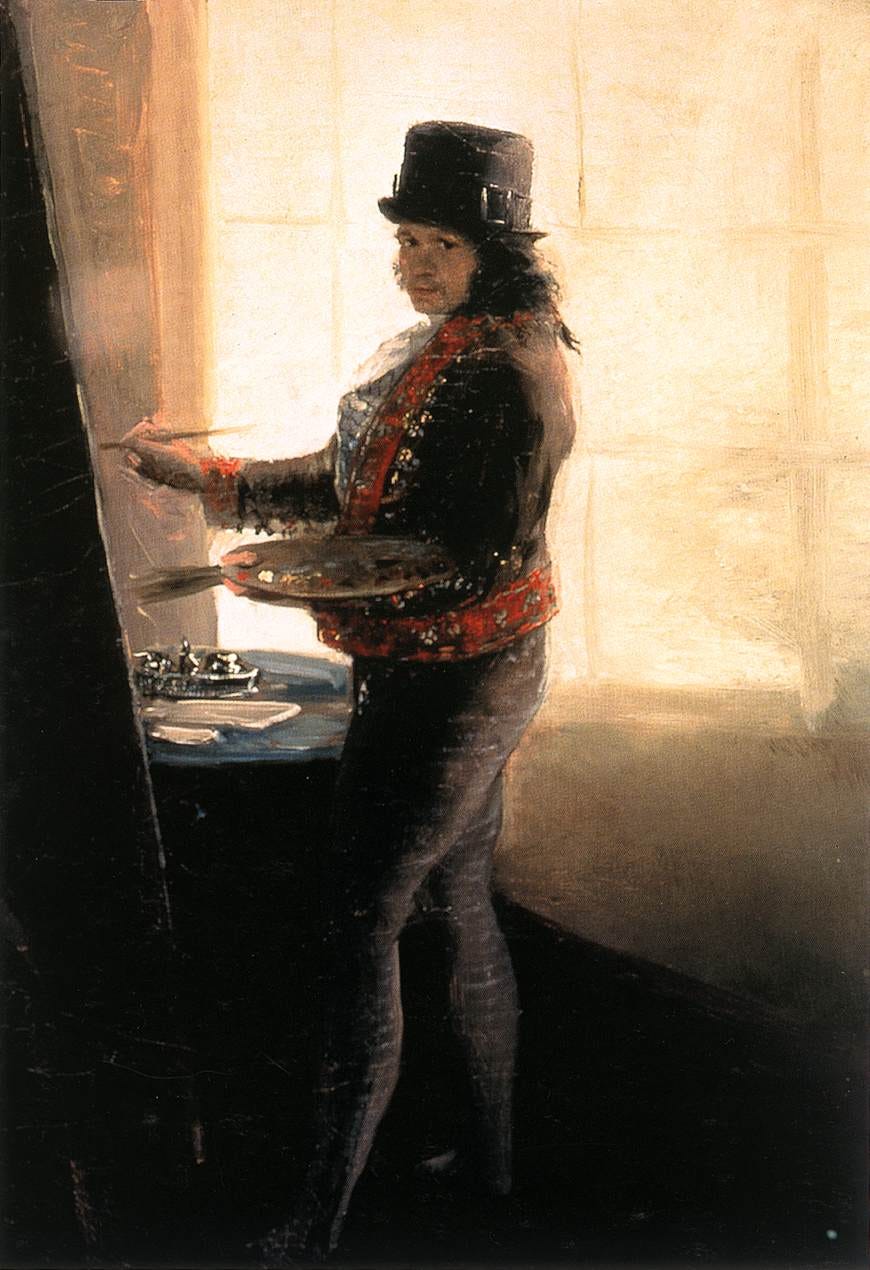
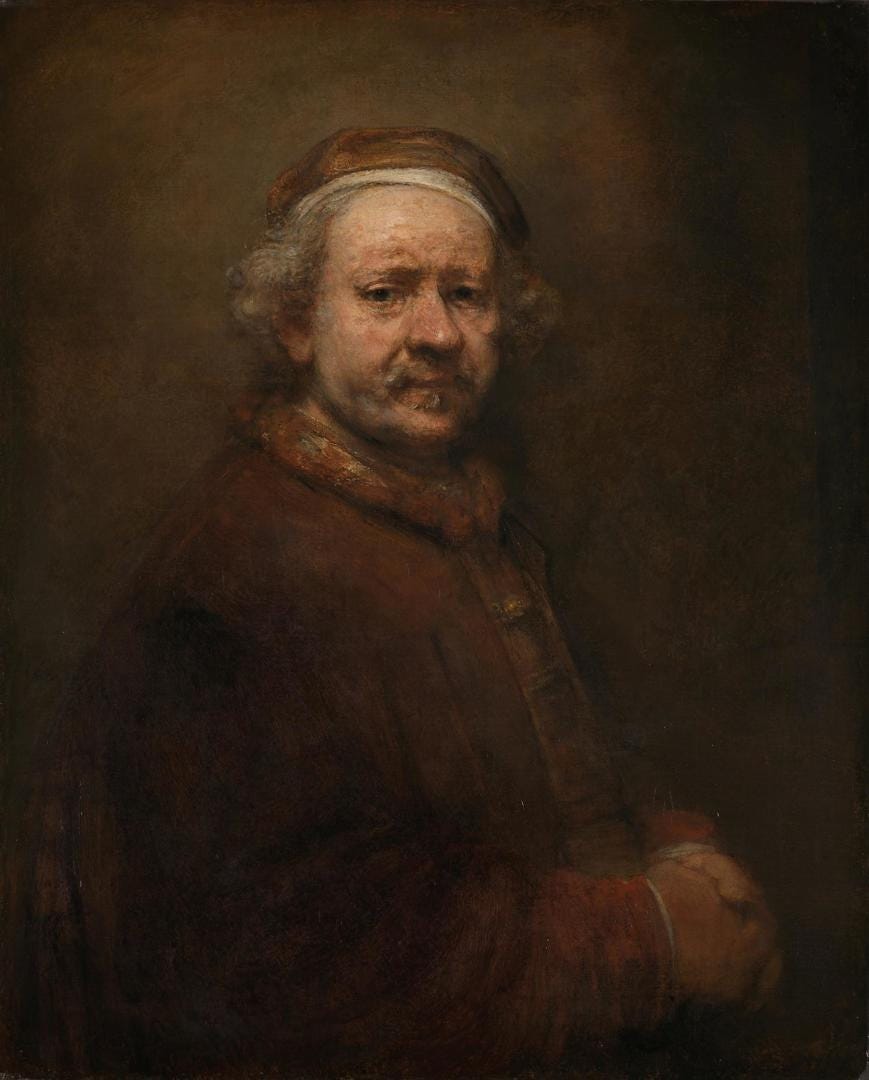
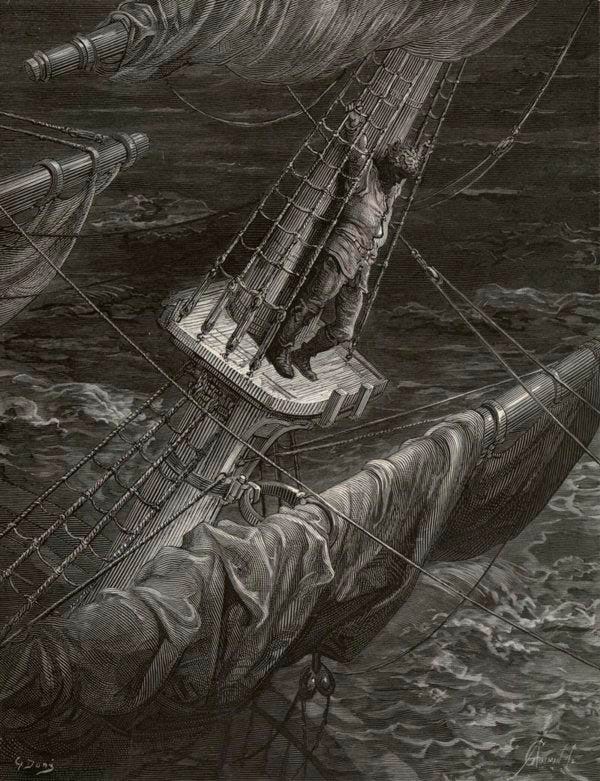

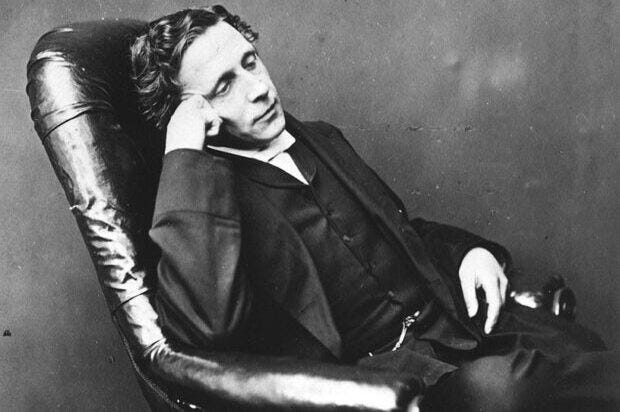
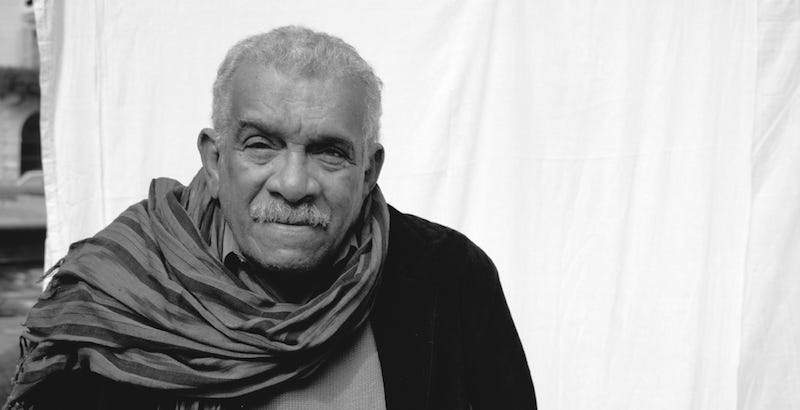

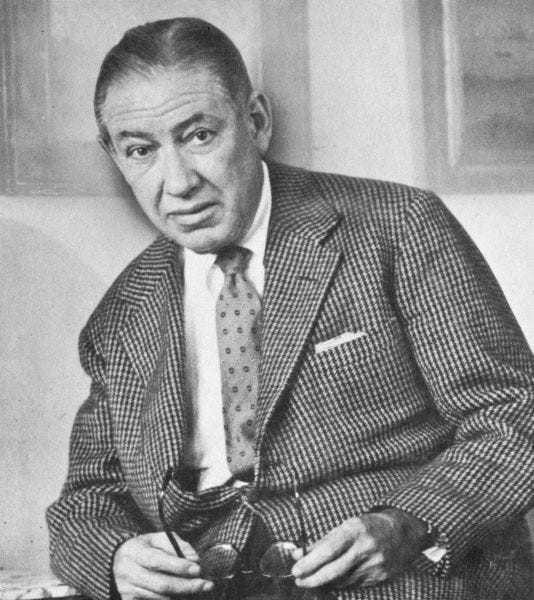
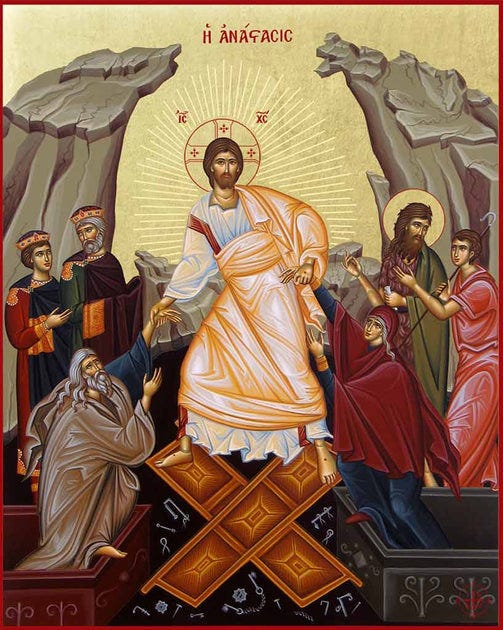
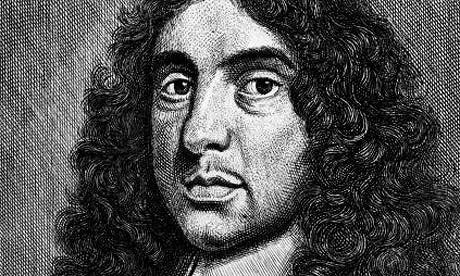
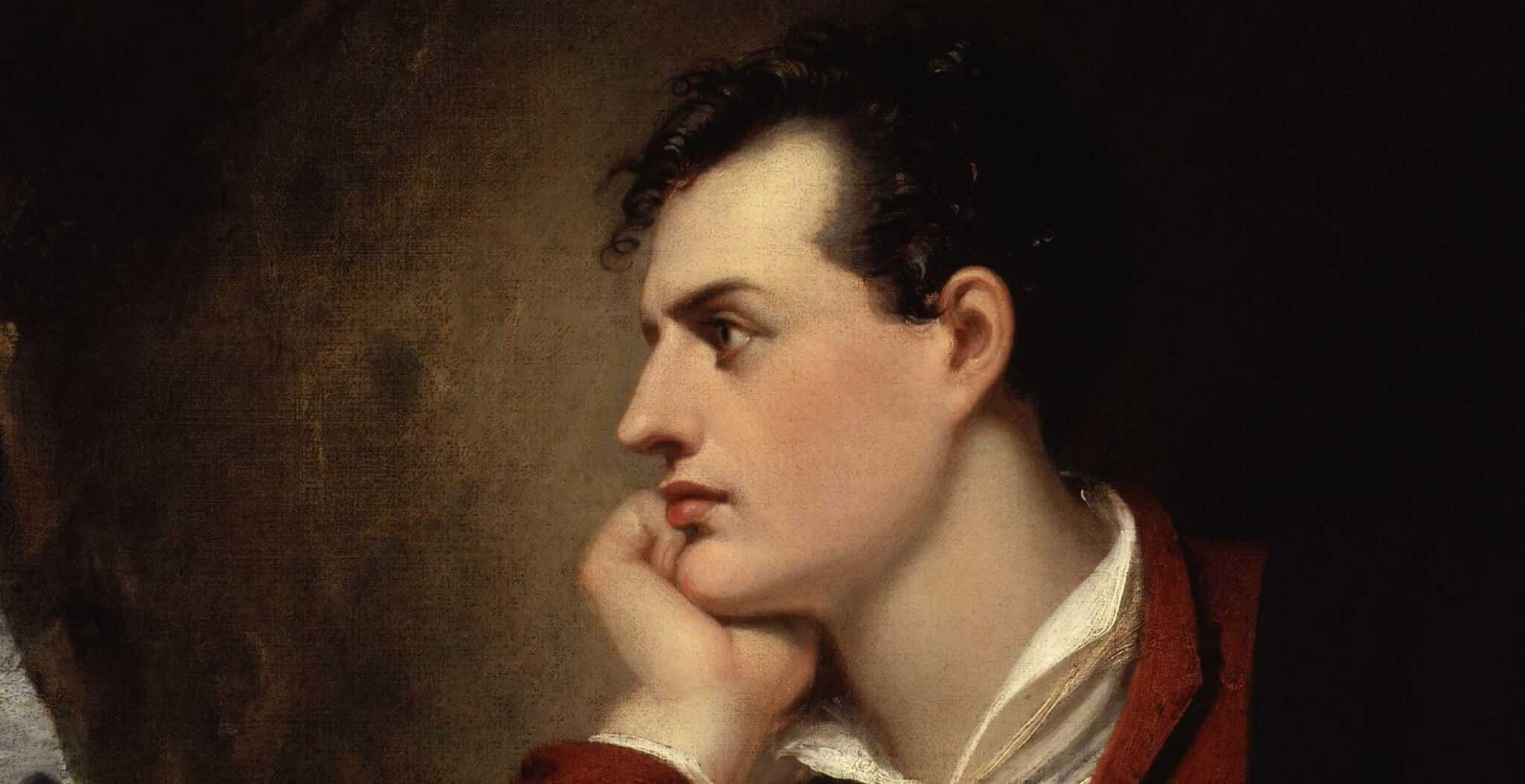
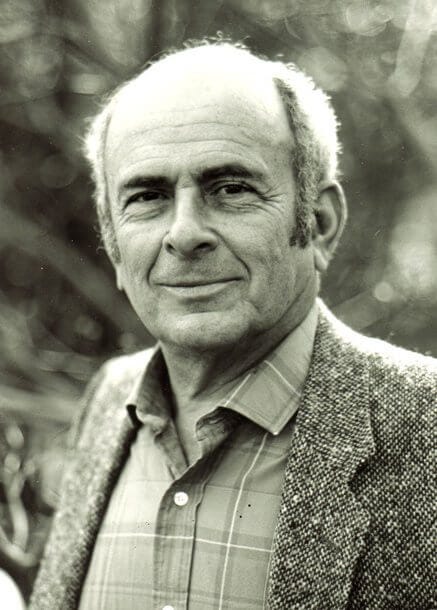



Be not ashamed, most excellent Falstaff; Your ruffians must needs fight o'er each morsel. Though march'd formation may be but a gaffe, They 're season'd in battle unconventional.
Wow! I really enjoyed this one. Thank you!
Martha Redbone's album "The Garden of Love" put 12 poems of William Blake's to music in her mix of appelacian/native american/afro-american style. Great album. The music really fits the words.
Martha Redbone put this poem and other poems of Blake to music including this poem
So glad you're back.
great poem and commemtary. We are all more fundamentalist than we carece to acknowledge
Midwest represent!
This poem really struck home. So needed in these divisive times where we think we can fix our world by cutting out the parts we don't like
Would you please read lili reinheart's poems in another podcast too ?
@tonymdonca, here's where "what the hammer?!" comes from 😁
Thank you
A beautiful and care-ful poem about, I think, the delicate and disciplined work of gratitude.
❤
Martha Redbone put twelve of Blake's poems to music in her album "The Garden of Love". it's amazing how well they fit into a folk genre
Good to have you back. These are challenging times. What better time for poetry? Actually the sound quality was pretty good and the wind in the trees a nice touch. But isn't that what art should be: there for us where we are?
where you gone, can't get through quarantine without this, please come back thanks fren
already done this one, remember? think it was in the first five or so eps lol
A pleasant reminder of what true bravery is.
the seventh sorrow, the wrinkly face watching the year pack up, is, I think, about the sorrow you feel when you suddenly notice that another year has whizzed by. time seems to pass more quickly with age, and every year I hear people saying "it can't be October already, where did the year go?" the first six are about the end of seasonal beauties and various creatures, but the seventh sorrow is a memento mori, it's about the end of us.
Poem read out beautifully